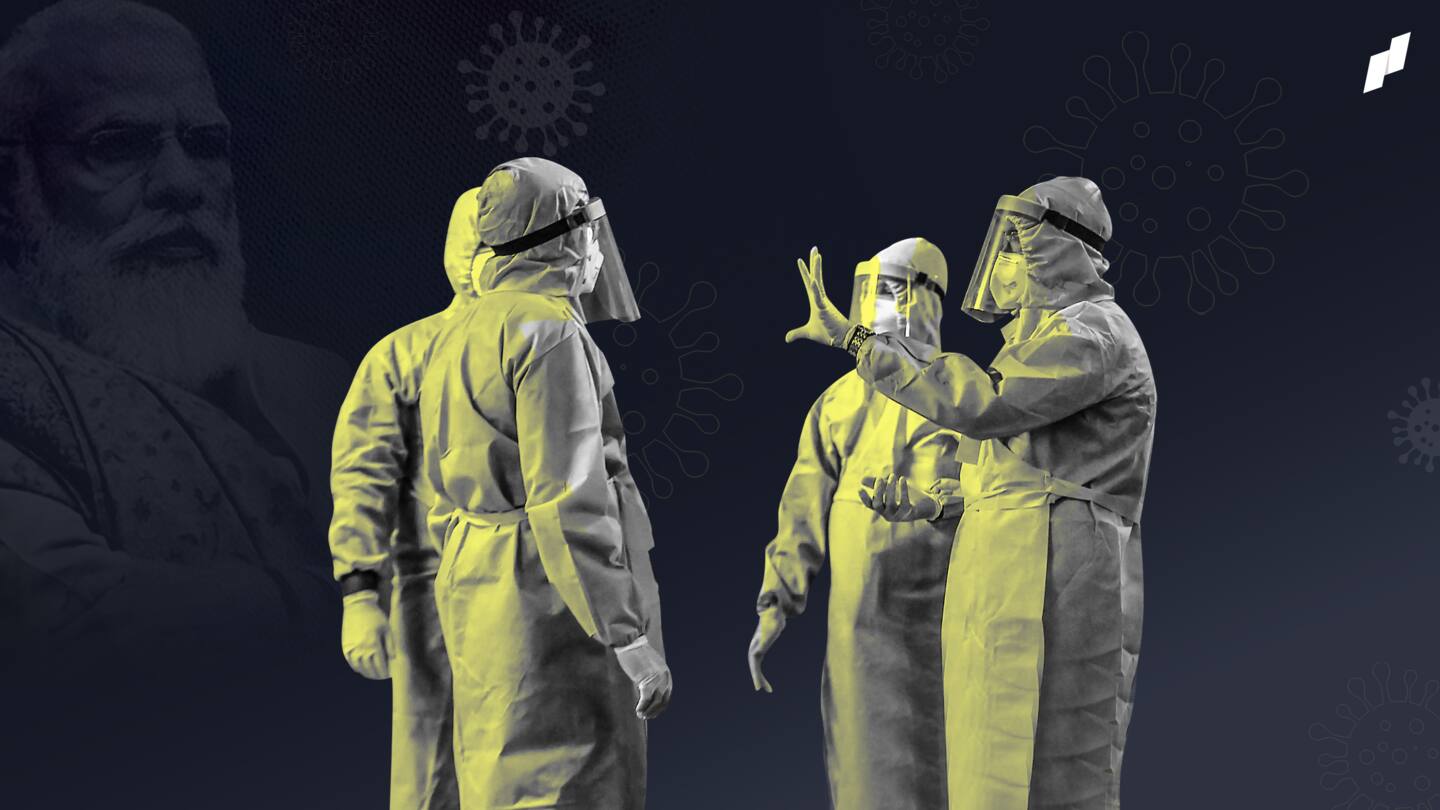
Unplanned vaccination can promote mutant strains, experts tell PM Modi
What's the story
A mass and unplanned vaccination can lead to the emergence of mutated strains of the coronavirus, a group of public health experts have told Prime Minister Narendra Modi, reported PTI. The panel includes doctors from the All India Institute of Medical Sciences (AIIMS) and members from the National Task Force on COVID-19. Here are more details on this.
Quote
'Mass, indiscriminate, incomplete vaccination can trigger mutations'
"Mass, indiscriminate, and incomplete vaccination can trigger the emergence of mutant strains. Given the rapid transmission of infection in various parts of the country, it is unlikely that mass vaccination of all adults will catch up with the pace of natural infection," the experts said.
Details
Who all should be prioritized?
In their report, experts from medical bodies including Indian Public Health Association and Indian Association of Epidemiologists, said vaccinating the vulnerable who are at a high risk should be the priority for now, instead of a mass inoculation program. "Opening all fronts simultaneously will drain human and other resources and would be spreading it too thin to make an impact at the population level."
Information
No need to vaccinate those who had the infection: Experts
Further, there is no need to vaccinate those who have had the coronavirus infection in the past. Their inoculation can be considered once there is evidence to suggest benefits of vaccination after natural infection, according to the experts.
Recommendations
Flexibility in vaccine schedule may be reconsidered for some areas
Experts recommended that evidence-based flexibility in vaccination schedules may need to be reconsidered for areas or populations experiencing a surge in cases due to certain variants. For example, the interval between Covishield doses (currently 12-16 weeks) may be reduced for an area experiencing surge in COVID-19 cases. According to the experts, the focus should be to reduce the number of deaths rather than infections.
Recommendations
What do the experts recommend?
The report has suggested the implementation of repeated local-level serosurveys to further guide the vaccination strategy. "If the seroprevalence at district level, is more than 70 percent, there should not be any lockdown and return to normalcy should be attempted." There should also be efforts to raise genome sequencing to at least 3% of total samples so as to track emerging variants, experts suggested.
Vaccination
How is the vaccination drive going in India?
India began the coronavirus vaccination drive this January and opened it to all adults last month. However, the program has been marred by a shortage of doses. More than 24 crore vaccine doses have been administered across India, but just above 3% of the Indian population has been fully vaccinated as yet. The government says it is taking several measures to ramp up supply.